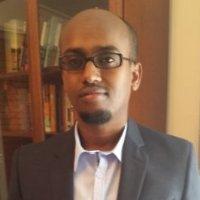On the Significance of Determining whether Darfur is Genocide
In his latest contribution to the debate “what should Obama do about Darfur?” in The New Republic, Alan Wolfe poses the question, why does it matter whether what is happening in Darfur is genocide or not? Wolfe frames the question in terms of its implications for U.S. policy to stop future genocides. If Darfur today is indeed a case of genocide (as Eric Reeves contends) then it must be the place and now must be the occasion for the U.S. administration to take a stand and fashion its policy against genocide. On the other hand, he writes, “if it turns out that Darfur is the wrong place to apply the genocide narrative, doing so could cause far more harm than good.”







This short post makes no mention of the fact that Alan Wolfe, in framing the issue as simplistically as he has, appears to have ignored my earlier comment in The New Republic forum (http://www.tnr.com/politics/story.html?id=07d1e69c-4e40-4f69-ad2d-ec8fefbbd4c9), specifically:
“In issuing the warrant [for Sudanese President Omar al-Bashir, charging him with crimes against humanity], the Court in its accompanying press release noted: ‘[Al-Bashir] is suspected of being criminally responsible, as an indirect (co-)perpetrator, for intentionally directing attacks against an important part of the civilian population of Darfur, Sudan, murdering, exterminating, raping, torturing and forcibly transferring large numbers of civilians, and pillaging their property.’ As a description of what has occurred, and continues to occur in Darfur, this hardly seems in any way an exoneration. The UN Commission of Inquiry Report (January 2005)…made clear that crimes against humanity could be just as destructive and morally abhorrent as genocide.â€
And yet Wolfe argues:
“The question of genocide in particular cannot be avoided because everything else flows from it. It is because Eric Reeves is convinced that genocide is ongoing that he urges forceful action. And it is because de Waal does not agree with Reeves that he recommends a solution in which the United States plays a behind-the-scenes role urging the Sudanese to develop their own political solution to the conflict.
This is precisely wrong, at least as a representation of my views. I have indeed argued since February 2004 [Washington Post, [ http://pqasb.pqarchiver.com/washingtonpost/access/550097591.html?dids=550097591:550097591&FMT=ABS&FMTS=ABS:FT&fmac=&date=Feb+25%2C+2004&author=Eric+Reeves&desc=Unnoticed+Genocide ] that genocide is occurring in Darfur. But I have never argued that genocide is the necessary threshold for international action or humanitarian intervention. International intervention might well be justified by crimes against humanity, depending upon the circumstances.
But in early 2004 I did conclude my Washington Post piece by declaring that:
“Khartoum has so far refused to rein in its Arab militias; has refused to enter into meaningful peace talks with the insurgency groups; and most disturbingly, refuses to grant unfettered humanitarian access. The international community has been slow to react to Darfur’s catastrophe and has yet to move with sufficient urgency and commitment. A credible peace forum must rapidly be created. Immediate plans for humanitarian intervention should begin. The alternative is to allow tens of thousands of civilians to die in the weeks and months ahead in what will be continuing genocidal destruction.â€
Mutatis mutandis, every word is as true today as it was then—for certainly a great many tens of thousands of human beings have been deliberately destroyed in the intervening five years. In early 2004 I had no company in determining that the evidence supported a conclusion of genocide; other voices, though, would follow throughout the course of the year, including that of Justice Africa:
“In response to the question, ‘Is the Darfur conflict genocide?’ [,] if we strictly apply the provisions of the 1948 Convention on the Prevention and Punishment of the Crime of Genocide, there is no doubt that the answer is yes.†(Justice Africa briefing, May 2004, at http://www.africa.upenn.edu/afrfocus/afrfocus061804.html)
Alex de Waal declared (August 2004) that the National Islamic Front/National Congress regime’s counter-insurgency actions in Darfur “were the routine cruelty of a security cabal, its humanity withered by years in power: it is genocide by force of habit.”
De Waal now has a different view of genocide in Darfur, but I suspect in any event he too would disagree with Wolfe’s assessment: that a genocide finding (by whom?) is the necessary threshold or trigger for international intervention, whether military or otherwise. Thus Wolfe is wrong all around in declaring that genocide is the “central question,†the particular question that “cannot be avoided because everything else flows from it.â€
Eric Reeves
Smith College
Northampton, MA 01063
413-585-3326
[email protected]
http://www.sudanreeves.org
Hi Eric,
Its good to read your beautiful piece, and very interesting to know that Justice Africa had earlier in May 2004 concluded that the Darfur conflict and killings fall under, judging by “the provisions of the 1948 Convention on the Prevention and Punishment”, and interestingly enough, “the Crime of Genocide”. Wolfe’s logical explanation that “the Obama administration can also rely on the ICC decision to treat Darfur as a crisis that needs attention without drawing parallels to genocides that have taken place elsewhere” acknowledges the pragmatic essence of “balance” between enforcing that legally-binding landmark decision and political expediency: one the does not ask the US to carry out an extra-legal voyage but simply calling on the US to use the decision as a leverage to intervene.
Eric, thanks for your illuminating contribution – for setting the records straight!